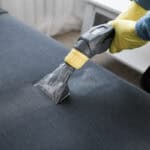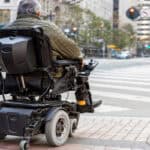Many people who live with sleep apnea have concerns about starting continuous positive airway pressure (CPAP) therapy. They may be worried about comfort or effectiveness, or they might feel that CPAP machines are more trouble than they’re worth.
Fortunately, there are signs that your CPAP machine is helping you. They may not be apparent right away, but paying attention to these subtle changes in your behavior can help you determine if the treatment is paying off.
Reduced Daytime Sleepiness
Many people who suffer from sleep apnea feel tired throughout the day. This is because the condition causes them to briefly wake up multiple times throughout the night rather than getting a full, restful sleep. The number one symptom of this is regular yawning, even if you don’t feel physically tired.
One sign that your CPAP machine is doing its job is having more energy throughout the day. You won’t feel like you’re yawning or drifting off as often, and you’ll take fewer naps. Nightly CPAP therapy keeps you alert and active throughout the day, giving you more energy to engage in your favorite activities.
More Restful Nights
A CPAP machine can help you get a better night’s rest by making it easier to fall asleep. Many people fear that falling asleep with a mask on may prove difficult. However, there are many different types of CPAP masks, so you can find one that works for your comfort level and preferred sleeping position.
With a CPAP machine, you’re less likely to wake up periodically throughout the night. It helps your body maintain steady oxygen levels, which gives your brain and muscles a chance to rest for the night. A CPAP machine can also benefit those around you by eliminating snoring sounds.
Waking Up Easier
Another sign that your CPAP machine is helping you is that crawling out of bed in the morning won’t feel like as much of a chore. Some folks simply aren’t morning people. They still may not want to get out of bed when they wake up, but a proper night’s rest can make it easier. You’re also less likely to experience common sleep apnea afflictions such as headaches, helping you feel more refreshed in the morning rather than groggy or disorientated.
Monitoring these improvements keeps you committed to your CPAP therapy routine. Keep a simple log of your energy levels, sleep quality, and morning symptoms to share with your healthcare provider. This information helps them adjust your treatment settings and ensures you continue receiving optimal therapy for your sleep apnea.







